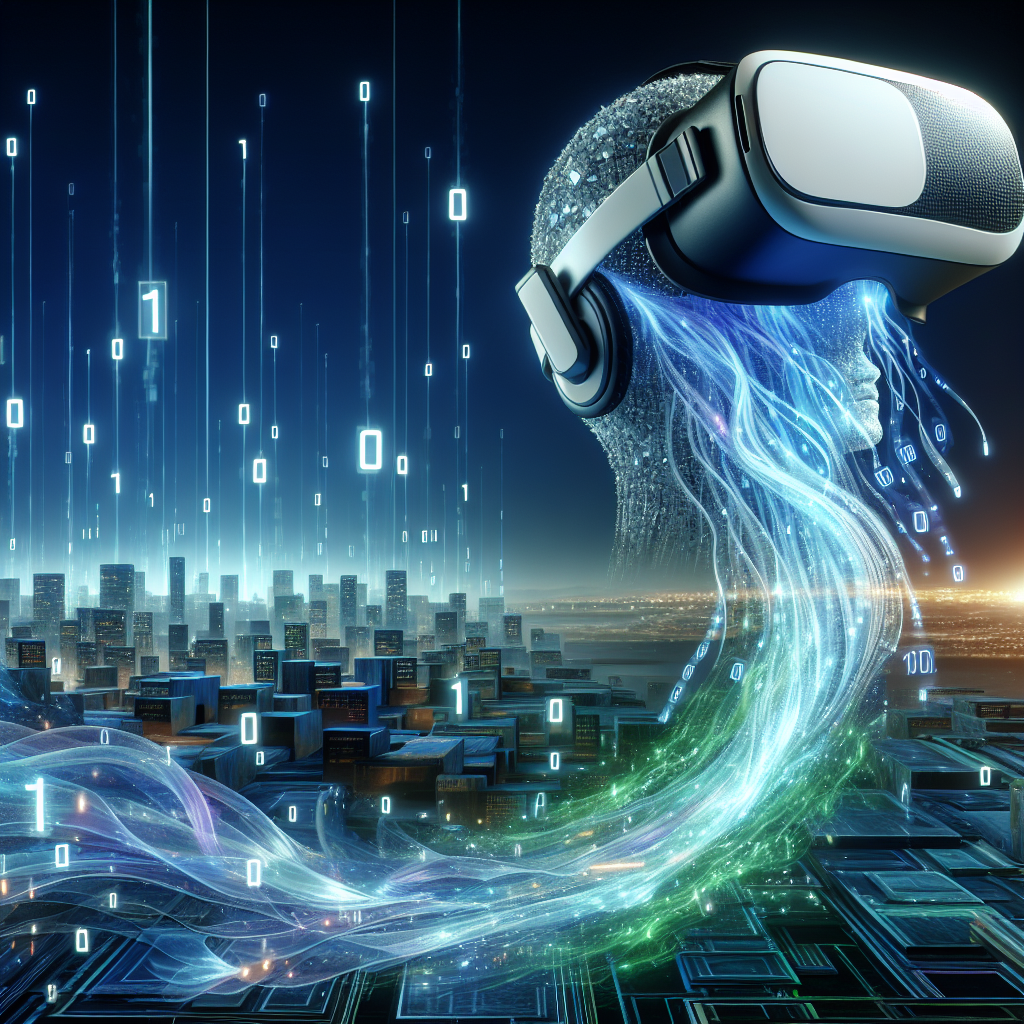The Rise of AI in Virtual Reality Gaming
Virtual reality (VR) gaming has quickly become one of the most exciting and immersive forms of entertainment in recent years. With the advancement of technology, VR has opened up new possibilities for gaming experiences that were previously unimaginable. One of the most significant developments in this field is the integration of artificial intelligence (AI) into VR games.
AI has been a crucial component in the gaming industry for many years, but its integration into VR gaming has taken it to a whole new level. AI in VR gaming allows for more dynamic and realistic gameplay, as well as enhanced immersion and interactivity. In this article, we will explore the rise of AI in virtual reality gaming and its impact on the gaming industry.
The Integration of AI in Virtual Reality Gaming
AI in VR gaming has revolutionized the way games are played and experienced. In traditional video games, AI is used to control non-player characters (NPCs) and provide challenges for the player. However, in VR gaming, AI can be used to create more realistic and dynamic environments that respond to the player’s actions in real-time.
One of the key benefits of AI in VR gaming is its ability to adapt to the player’s behavior and provide a more personalized gaming experience. AI algorithms can analyze the player’s actions and adjust the game’s difficulty level, pacing, and challenges accordingly. This ensures that the player is constantly engaged and challenged, leading to a more satisfying gaming experience.
AI in VR gaming can also be used to create more realistic and intelligent NPCs that behave more like human players. These NPCs can adapt to changing game conditions, make strategic decisions, and interact with the player in a more natural and lifelike manner. This adds a new layer of complexity and depth to VR games, making them more immersive and engaging.
Another key aspect of AI in VR gaming is its ability to enhance the social aspect of gaming. AI-powered NPCs can simulate human-like interactions, allowing players to engage with virtual characters in a more meaningful way. This can create a more social and collaborative gaming experience, as players can work together with AI-controlled characters to achieve common goals or compete against each other in multiplayer games.
The Impact of AI on Virtual Reality Gaming
The integration of AI in virtual reality gaming has had a profound impact on the gaming industry. It has opened up new possibilities for game developers to create more dynamic and immersive gaming experiences that were previously not possible. AI-powered NPCs can provide a more challenging and realistic gaming experience, leading to increased player engagement and satisfaction.
AI in VR gaming has also enabled the development of more sophisticated and intelligent game worlds that respond to the player’s actions in real-time. This level of interactivity and immersion has helped to blur the lines between reality and virtual reality, creating a more immersive and engaging gaming experience for players.
Furthermore, AI in VR gaming has the potential to revolutionize the way games are designed and developed. AI algorithms can analyze player behavior and preferences to create personalized gaming experiences that cater to individual player needs and preferences. This level of personalization can help to increase player retention and loyalty, as players feel more connected to the game and invested in their gaming experience.
Overall, the integration of AI in virtual reality gaming has the potential to transform the gaming industry and redefine the way games are played and experienced. With the continued advancement of AI technology, we can expect to see even more innovative and immersive VR games in the future that push the boundaries of what is possible in gaming.
FAQs
Q: How does AI enhance the gameplay experience in virtual reality gaming?
A: AI in virtual reality gaming enhances the gameplay experience by creating more dynamic and realistic environments, intelligent NPCs, and personalized gaming experiences. AI algorithms analyze player behavior and adjust the game’s difficulty level, pacing, and challenges accordingly, leading to a more engaging and immersive gaming experience.
Q: What are some examples of AI-powered features in virtual reality games?
A: Some examples of AI-powered features in virtual reality games include intelligent NPCs that behave more like human players, dynamic game environments that respond to the player’s actions in real-time, and personalized gaming experiences that cater to individual player preferences. AI in VR gaming can also enhance social interactions between players and virtual characters, creating a more collaborative and engaging gaming experience.
Q: How is AI shaping the future of virtual reality gaming?
A: AI is shaping the future of virtual reality gaming by enabling developers to create more sophisticated and immersive gaming experiences that push the boundaries of what is possible in gaming. AI-powered features such as intelligent NPCs, dynamic game environments, and personalized gaming experiences are revolutionizing the way games are played and experienced, leading to a more engaging and interactive gaming experience for players.
In conclusion, the rise of AI in virtual reality gaming has brought about a new era of gaming experiences that are more dynamic, immersive, and engaging than ever before. AI-powered features such as intelligent NPCs, dynamic game environments, and personalized gaming experiences have revolutionized the gaming industry and redefined the way games are played and experienced. With the continued advancement of AI technology, we can expect to see even more innovative and immersive VR games in the future that push the boundaries of what is possible in gaming.

